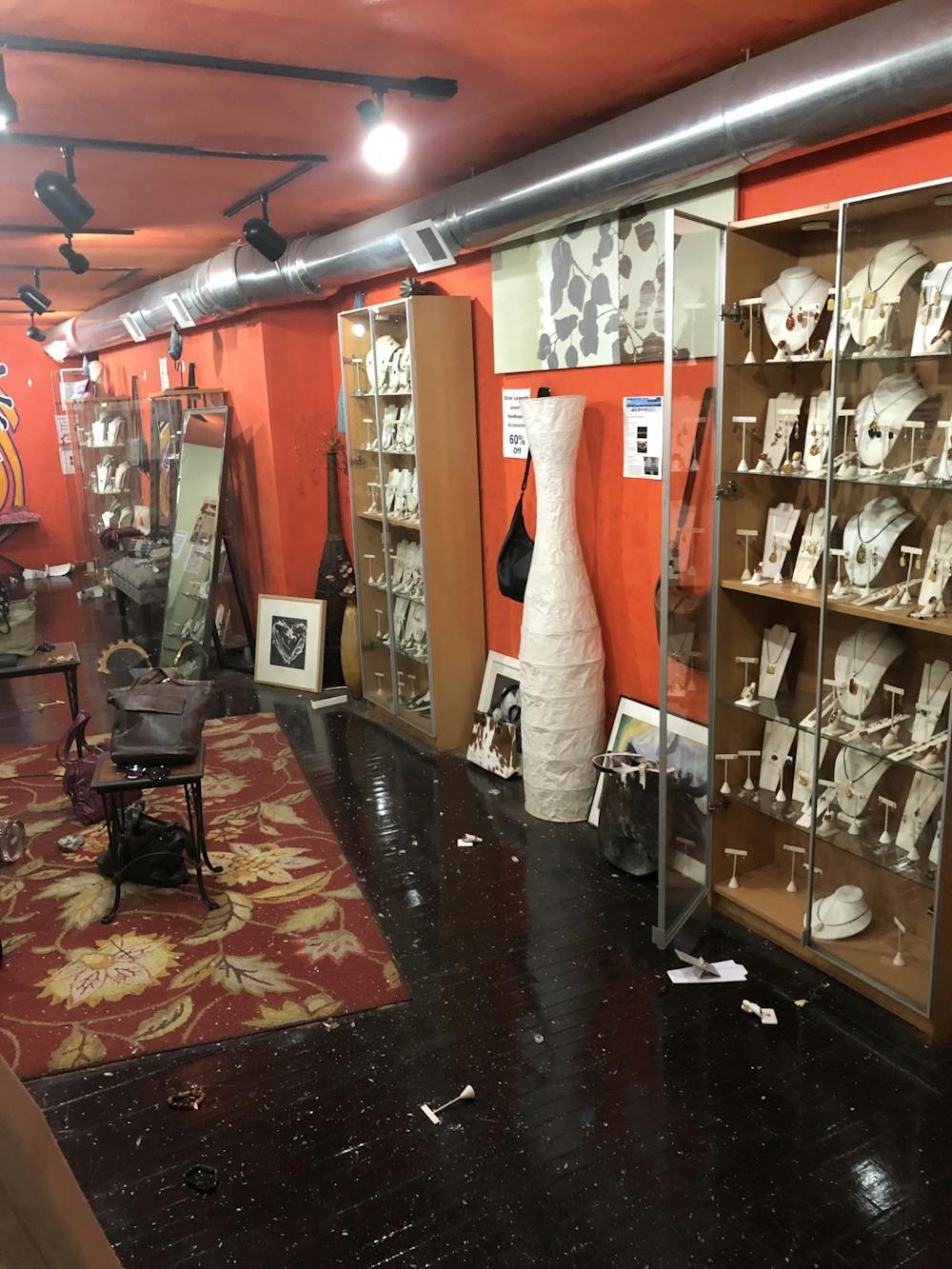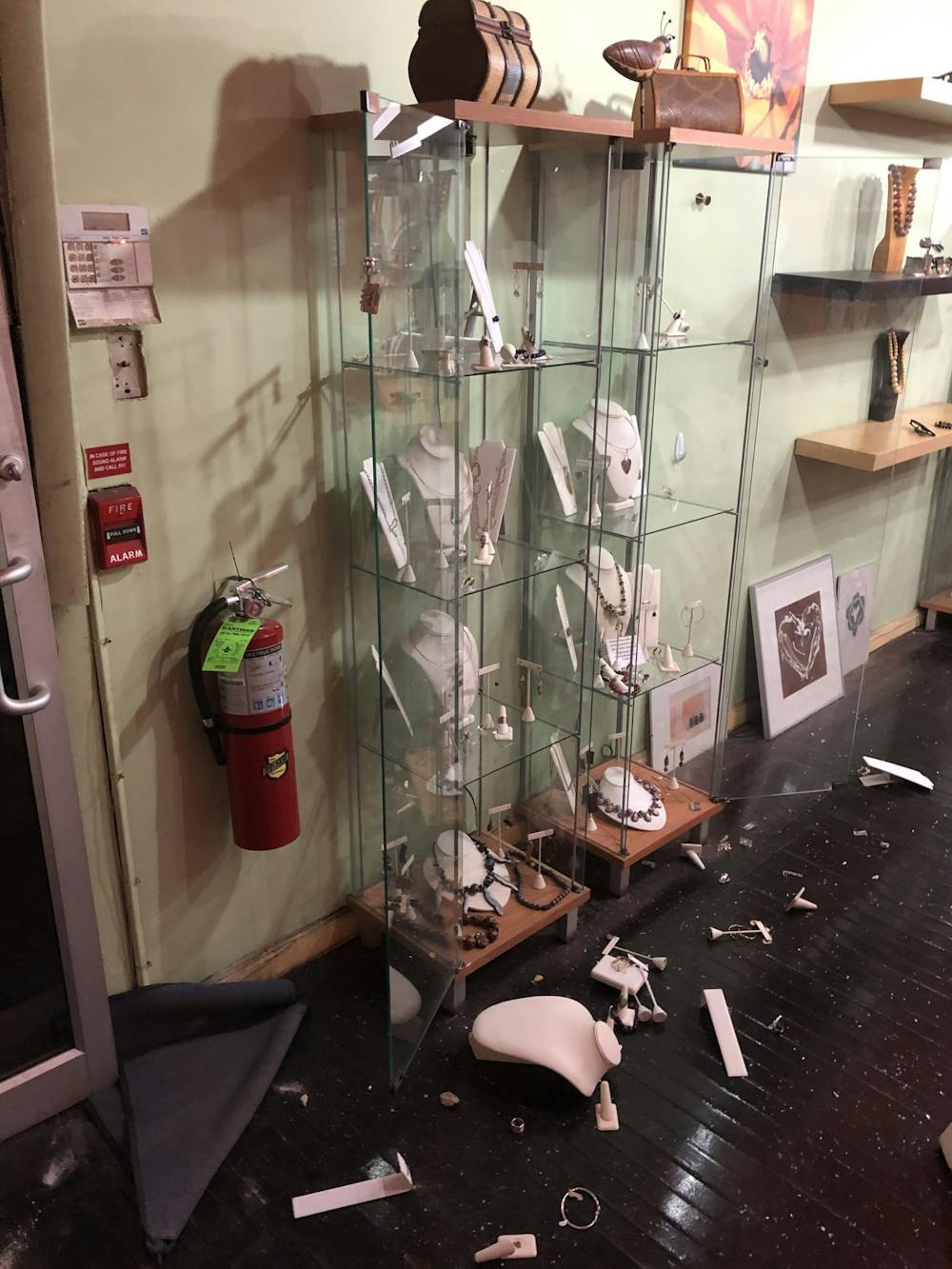
The murder of George Floyd by Minneapolis police officer Derek Chauvin has spurred protests against systemic racism across 140 cities worldwide. The Black Lives Matter movement calls for police reform and seeks to combat violence against Black communities. As powerful displays of anger and heartbreak overwhelm news outlets and social media feeds, addressing police misconduct is paramount. However, amid peaceful demonstrations, riots and looting have put small businesses at risk.
The unprecedented challenges of COVID-19 have a pronounced effect on local institutions, and many owners predict sustained economic losses and prolonged closure. Recent destruction and theft have further devastated businesses already suffering from pandemic conditions. This byproduct of anti-racist activism has become a focal point of public and political narratives, and listening to the voices of local retailers in our Philadelphia community is a key first step to detangling the effects of the protests and determining the best way to catalyze change.

Mr. Scott watched live on his security camera as people invaded his store last week. (Photo from Leon Scott)
Small business owner Leon Scott founded the Silver Legends jewelry boutique over fifteen years ago. His brick and mortar store on 20th and Walnut Streets has a long history of providing beloved patrons with handcrafted silver pieces, handbags, and accessories. The city-wide mandate forced him to close his store on March 17, and he is unsure when he will be able to reopen.
This past week, looters inflicted severe property damage on the store and stole some merchandise. Mr. Scott has a cloud security camera installed in his store, and watched live as people invaded.
“About ten minutes into watching the cloud camera, we saw someone kicking in our door and coming into the store," he said. "That was a traumatic thing to behold."
The media coverage of looting and property destruction nationwide has diverted public attention from the source of outrage: the despicable display of racism and abuse of power by police officers across the nation. The financial impact of looting on small businesses is not insignificant, but it is crucial to identify it as a hidden cost of a public outcry demanding police reform, justice, and accountability.
“The looters are not the core of the protest. Some people are taking advantage where they can, and unfortunately it’s affecting small businesses to a great extent," Mr. Scott said. "The core message is that it’s time to change. What’s going on has been transpiring in this country for far too long, and people are fed up."
It has become increasingly challenging to delineate peaceful protesters and violent opportunists. Reasons for looting vary widely, from frustration, to desperation, to a desire for anarchy. Whatever the motivations are, the reason that chaos has broken out across American cities is because an entire race is crying out for long overdue justice. The country-wide protests highlight the deep-seeded polarization between those who prioritize a return to law and order, and those who prioritize anti-racism. I condemn looting. I condemn unnecessary violence. But riots are a direct result of oppression that has structurally disadvantaged the Black population for centuries. Peace will be restored not through a return to normalcy, but through profound change.

“The looters are not the core of the protest," said Mr. Scott. (Photo from Leon Scott)
I asked Mr. Scott how he believes we can best strive to achieve it.
“I don’t want to see change come through violence. Unfortunately, sometimes force has to be met with force. Sometimes that’s what is needed to get people’s attention … White people in power are killing people that look like me for no reason. People that could be my family members or myself … I don’t want to see any lives lost and I’m hoping that the message will prevail through peace.”
Small businesses are the backbone of the American economy, and the heart of local communities. Imagine returning to Penn, only to find that cherished spots like Greek Lady or Reading Terminal Market have been supplanted by Starbucks and Burger King. While many large corporations can withstand the crushing effects of a long-term recession originally sparked by COVID-19, the stagnant economic conditions of the pandemic could be a death sentence for local merchants.
Already, over 100,000 businesses have permanently shuttered. The dire reality is that most businesses cannot survive months without income followed by a cautious reopening at reduced capacity. Some do not maintain large cash reserves, and owners across the country struggle to pay their highest overhead cost — rent. Local, family-owned, businesses are the vibrant fabric of the Philadelphia community, and without them, the essence of our beloved city will be lost. Merchants who handcraft and locally source their products develop a network between vendors and patrons that enrich the city. Walking into cafés where workers remember my order and greet me by name provides a sense of familiarity and belonging that makes Penn feel like home.
After the looters fled, volunteers helped repair some of the damages to Mr. Scott’s store. “The whole community helped us barricade the windows and doors," he said. "People have been extremely kind-spirited."

Volunteers helped repair some of the damages to the Silver Legends store. (Photo from Leon Scott)
These compassionate efforts demonstrate the ingrained sense of community Mr. Scott has fostered with his customers, but Philadelphians need to do even more to help businesses stay afloat. Concrete actions such as purchasing gift cards and ordering take-out have made an enormous impact, and leveraging social media to show support can increase customer engagement and prompt online sales. Even simply tagging local businesses in social media posts helps to expand their visibility. Though the physical Silver Legends store on 2008 Walnut Street remains closed indefinitely, Mr. Scott continues to manage online sales on his website.
COVID-19 exacerbates existing economic disparities and raises concerns about the survival of Black-owned businesses. Only 2.5% of businesses in Philadelphia are owned by Black entrepreneurs, and they now struggle more than white firms to obtain credit. Supporting the Black community by patronizing their businesses is essential in the fight for justice. Reach out to local small business owners and ask how you can help.

MORGAN GILFOND is a rising College sophomore from New York City studying Economics. Her email address is mgilfond@sas.upenn.edu.
The Daily Pennsylvanian is an independent, student-run newspaper. Please consider making a donation to support the coverage that shapes the University. Your generosity ensures a future of strong journalism at Penn.
Donate







